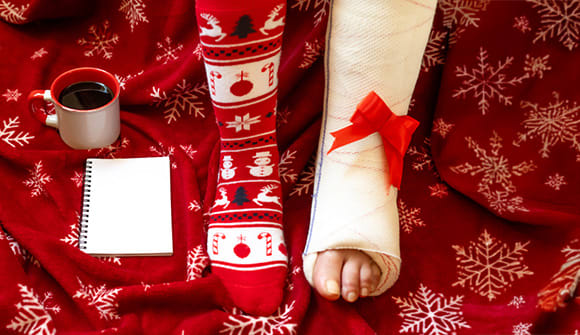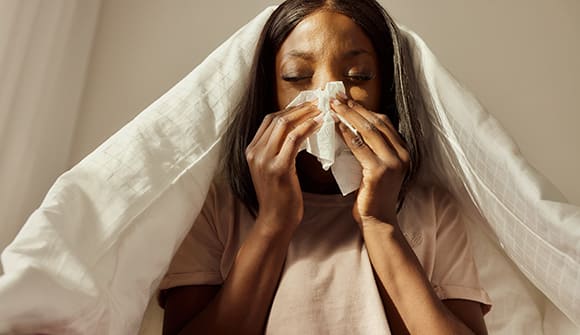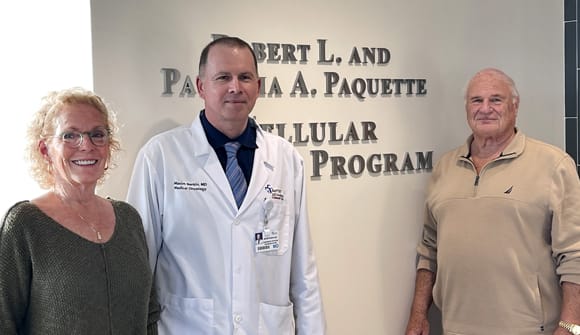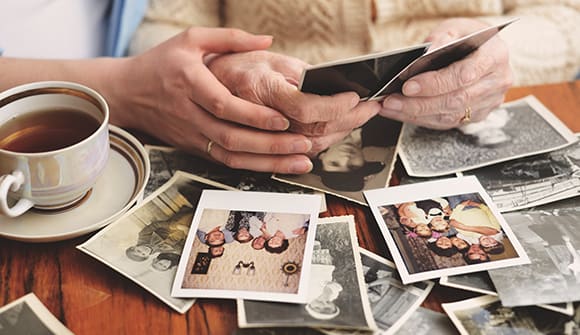Are you a "Sickle Cell Hero?
For patients with sickle cell disease, a local blood donor can make a world of difference.
Article Date:
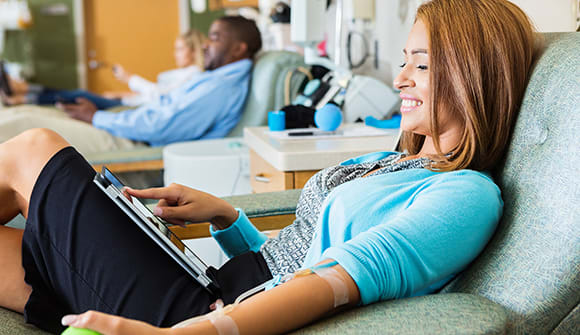
Every September, people living with sickle cell disease join the health care community in observing Sickle Cell Awareness Month.
With proper treatment, people living with sickle cell disease can enjoy a high quality of life. Blood donors with a specific red blood cell antigen profile play a critical role in the long-term treatment of sickle cell disease.
What is sickle cell disease?
Sickle cell disease is the common name for sickle cell anemia. The disease is passed down through families. It primarily affects people of African and Mediterranean descent; though it is also common among people from South and Central America, the Caribbean and the Middle East. Approximately one in every 365 African-American children is born with sickle cell disease.
Sickle cell disease is named for the thin, crescent-shaped red blood cells that face more difficulty passing through blood vessels than healthy, disc-shaped red blood cells. Common sickle cell disease symptoms include:
- Fatigue
- Swelling joints, hands, and feet
- Breathlessness
- Rapid heart rate
- Acute pain crises
- Yellowing of the eyes and skin (jaundice)
- Paleness
People living with sickle cell disease also have an increased risk of complications, including stroke, liver disease, and delayed growth.
How is sickle cell disease treated?
Blood transfusions are among the most common treatments for sickle cell disease. Transfusions can help increase the amount of healthy red blood cells in the bloodstream and lessen the effects of the sickle-shaped cells.
The frequency of transfusions can vary from one patient to the next. Some patients living with sickle cell disease need transfusions as often as every four weeks. Each of these transfusion events, or red blood cell exchanges, can require six to eight units of red blood cells. To reduce the risk of complications, Baptist Health works with LifeSouth Community Blood Centers to pair patients with blood donors whose blood type is a precise match.
We call these special donors “Sickle Cell Heroes” because they provide the life-saving red blood cells patients need to lead full and healthy lives.
Could you be a “Sickle Cell Hero”?
The best transfusion matches are likely to be found within a patient’s own ethnic group. LifeSouth tests donations from African-American donors to identify potential antigen profile matches. The organization is one of only a few blood centers in the United States to test large quantities of donors for the purpose of matching donors with patients living with sickle cell disease.
Here are three ways you can support your neighbors with sickle cell disease:
- Visit a LifeSouth donor center. LifeSouth operates a donor center at Baptist Medical Center Jacksonville, located at 800 Prudential Drive. The center is open Monday through Friday from 9 am to 4 pm, except for Wednesdays when hours are noon to 7 pm. LifeSouth will test each donation to identify potential donors with a matching blood type.
- Donate as often as you can if your blood antigen profile is a match. If you are identified as a “Sickle Cell Hero,” Baptist Health and LifeSouth may be able to link your donations with a local patient living with sickle cell disease.
- Join the Be The Match Registry. LifeSouth can assist local donors who are interested in being potential bone marrow or cord blood donors for patients in need, including those living with sickle cell disease.
Our guest columnist is Chris Lough, MD, vice president of Medical Services for LifeSouth Community Blood Centers. For more information about sickle cell disease, visit LifeSouth.org/SickleCell.
